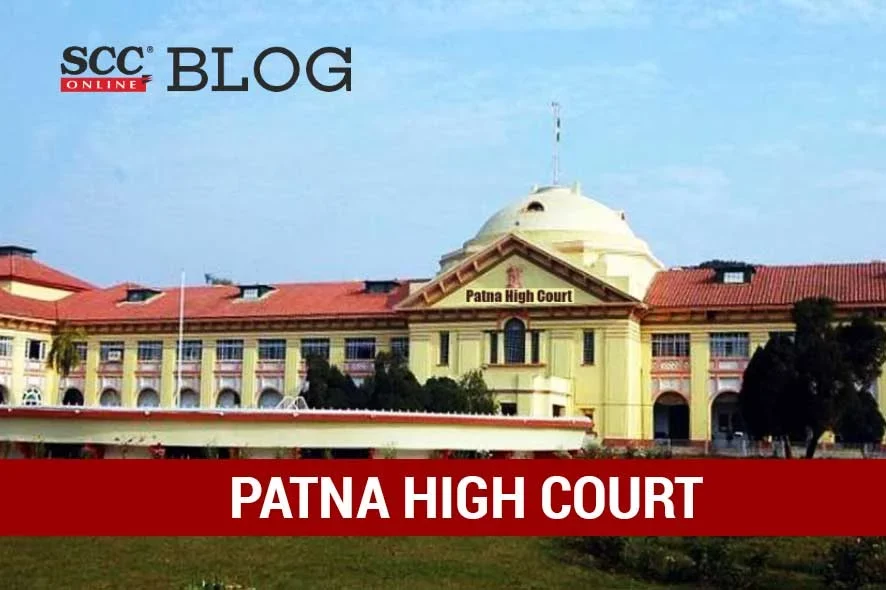Patna High Court: In a case wherein the writ applications were filed to challenge Section 4(5) of the Bihar State Universities (Amendment) Act, 2013 (‘Amendment Act, 2013’) by which Section 57A of the Bihar State Universities Act, 1976 (‘Act of 1976’) was substituted and to declare that it was ultra vires the Constitution in so far as the same affected the rights of minority educational institutions as enshrined under Article 30(1) of the Constitution, K. Vinod Chandran, C.J., and Partha Sarthy, J.*, concluded that by the reconstitution of the Selection Committee consisting of as many as six nominated persons and further by making the decision of the governing body of the minority colleges subject to the approval of the said Selection Committee, infringed with the rights of the minorities to establish and administer educational institutions of their choice. Hence, the Court held that the words “with the approval of the Selection Committee”, as occurring in Section 57A(5) of the Act of 1976 were to be read down as “in consultation with the Selection Committee”.
Background
The petitioner was the Secretary of Islamia Degree College, Shahpur, Kanti, District Muzaffarpur, an affiliated college under the B.R. Ambedkar Bihar University, Muzaffarpur and also a recognized minority educational institution.
The (Amendment) Act, 2013 published in the Bihar Gazette (Extraordinary) in 2013, by clause (4) provided that Section 57A of the Act of 1976 shall be substituted. Section 57 of the Act of 1976 provided for appointment to the post of teachers in Universities and their constituent colleges. Further, Section 57A of the Act of 1976 provided for procedure of selection to be prescribed by the Statute for appointment of teachers in such affiliated colleges which were not governed by the State Government or not funded by the Universities and he selection was to be processed by the Selection Committee constituted by the university under Section 57B of the Act of 1976.
Submissions on behalf of the Petitioner
The petitioner submitted that by introducing the newly substituted Section 57A by the Amending Act 2013, which provided that the governing body of minority colleges would require the approval of the Selection Committee constituted by the University. Thus, in effect, it was an interference with the right of administration and management of the minority educational institutions and was also in violation of Article 30(1) of the Constitution.
Analysis, Law, and Decision
The Court noted that after amendment though the constitution of the Selection Committee was predominantly of persons from the college, however, the respondents had introduced several persons through nominations. The Court observed that Section 57A required that the appointment, promotion, dismissal, discharge, removal from service and termination of service or demotion of teachers in affiliated colleges shall be taken in the manner prescribed after consultation with the Selection Committee; and that disciplinary action shall be taken against the teachers by the governing body of those colleges with the approval of a Selection Committee.
The Court opined that though the constitution of the Selection Committee was predominantly of persons from college itself, nevertheless by introducing as many as six nominated persons in the Selection Committee and further by making the decision of the Governing Body of the minority colleges subject to the ‘approval’ of the said Selection Committee, it infringed with the rights of the minorities to establish and administer educational institutions of their choice. The Court also opined that by use of the word ‘approval’ in Section 57A(5), the intention could not have been to violate the constitutional provision as contained in Article 30 of the Constitution, but it would be an effective consultation, and thus, the word ‘approval’ would have to be read down accordingly.
The Court relied on Delhi Transport Corpn. v. D.T.C. Mazdoor Congress, 1991 Supp (1) SCC 600, wherein the Supreme Court considered the circumstances under which the rule of reading down might be applied. The Court concluded that by the reconstitution of the Selection Committee consisting of as many as six nominated persons and further by making the decision of the governing body of the minority colleges subject to the approval of the said Selection Committee, infringed with the rights of the minorities to establish and administer educational institutions of their choice. Hence, the Court held that the words “with the approval of the Selection Committee”, as occurring in Section 57A(5) of the Act of 1976 were to be read down as ‘in consultation with the Selection Committee’. Therefore, Section 57A(5) of the Act of 1976 having been read down as stated above, the same was held to be in consonance with Article 30 of the Constitution and was constitutionally valid.
[Noor Alam Khan v. State of Bihar, 2023 SCC OnLine Pat 2639, decided on 23-08-2023]
Advocates who appeared in this case :
For the Petitioner: Mr. Abhinav Srivastava, Mr. Binodanand Mishra, Advocates
For the Respondents: Mr. P.K. Shahi, AG
*Judgement authored by- Justice Partha Sarthy








